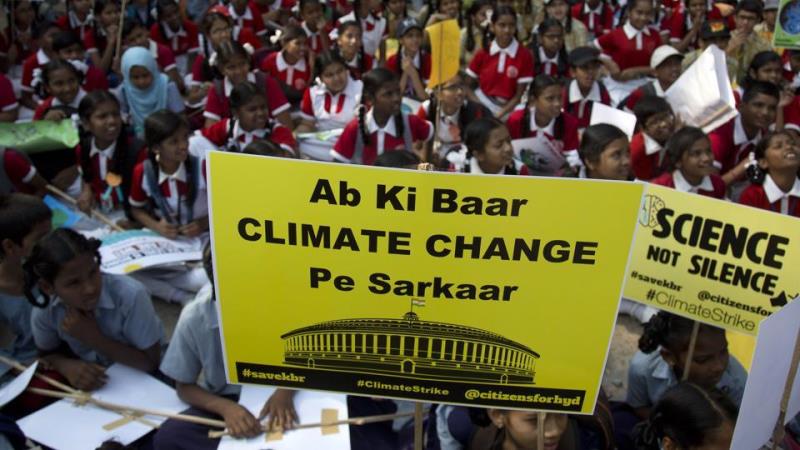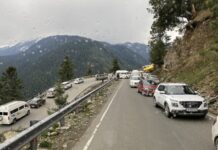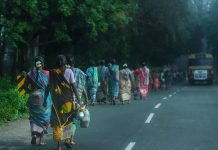The increasing gloom over the lack of adequate action on climate change has been at least partially broken by the sudden spurt in climate change actions and strikes by students and youths in many parts of the world. Thousands of scientists and researchers have come forward to support the highly just and well-recognised demands of these students for adequate steps to check climate change.
In 2015 at the time of an important United Nations conference on climate change in Paris, perhaps the first big protest by students organised in several countries was seen. Such action was revived by a student of Sweden Greta Thunberg in a very creative way. This is turn paved the way for several such protests in Australia, Belgium, Canada and other countries towards the end of 2018. In 2019 such events continued in England and elsewhere, culminating in huge protests spread over perhaps 2000 cities in the world in which millions of students participated.
An important aspect of these actions, also known as Friday for Future , was the decision of several students to devote one day of the week to work relating to efforts to protect environment. Some students as well as elders have called this the best education. This suggests a more longer-term engagement with the most urgent issues, not just a passing phase.
Another heartening feature was the tremendous support extended by scientists and researchers, particularly those working on climate change and related areas. This was a good support for students, and confirmed further that the scientific facts calling for urgent and adequate actions to check climate are very strong.
A big support for student actions came when the United Nations Secretary General Guterres Antonio embraced the protesting students on March 15, and said, “My generation has failed to respond to the dramatic challenge of climate change. This is deeply felt by young people. No wonder they are angry.”
This aspect of the present government failing to protect the most important interests of the next generation (and the generation after that) is becoming a key issue. Individually, parents always say that they are working so hard only for the sake of their children. But at a global level, the most important responsibility of protecting the most basic life-sustaining conditions has been neglected and violated to an alarming extent and this has been a huge failure of this generation – or rather of the most important powerful decision makers of this generation, with the result that the next generation is likely to inherit a very unsafe and unsecure earth, unless big corrective steps are set in motion immediately.
This fact was also highlighted in a special issue of ‘Human Development Report’ devoted to climate change. In this report the United Nations Development Program (UNDP) presented the failure to adequately check climate change as a failure of this generation towards the future generations. The report said, “Our children and their grandchildren have the right to hold us to a high standard of accountability when their future – and may be their survival – is hanging in the balance. They deserve more than a generation of political leaders who look at the greatest challenge humankind has ever faced and then sit on their hands.”
Further this report said, “Humanity is living beyond its environmental means and running up ecological debts that future generations will be unable to repay. … Future generations will see our response to climate change as a measure of our ethical values. … Our action will serve as a barometer of our commitment to cross-generational social justice and equity- and as a record against which future generations will judge our actions.”
While climate change has been at the core of recent student and youth actions, it is of course only one of several serious environmental problems which are acting in combination to seriously disrupt the life nurturing conditions of our planet. In addition there are also the equally threatening risks posed by the nearly 14500 nuclear weapons which exist today, as also the fast emerging robot weapons or AI weapons.
Hence the overall situation that emerges is that the children and students of today are going to inherit a very risky and dangerous world in which the life-nurturing conditions of our planet are seriously disturbed. An increasing number of very senior scientists have been trying to draw attention to this in recent years and it now appears that the students have learnt this lesson will enough to be moved to actual actions on this front.
Such actions based on deep and increasing concern among the youth for protecting the environment and the basic life-nurturing conditions of our planet should be widely welcomed and should receive wide support from all people–young, middle aged and elderly. There is also a strong case for observing the next decade as Save the Earth Decade to focus attention on the most urgent tasks ahead.
Bharat Dogra is a freelance journalist who has been involved with several social movements and initiatives. His latest book Survival Crisis—Planet in Peril has been published by Vitasta.














